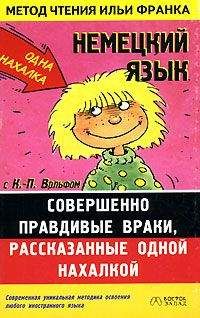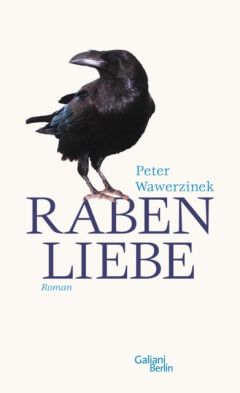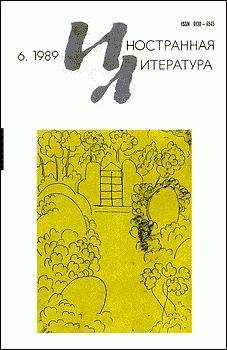Уильям Моэм - Английский язык с У. С. Моэмом. На окраине империи. Рассказы
harbour ['hQ: bq], syndicate ['sIndIkIt], occasional [q'keIZ(q)nql], scheme [ski: m], mayor [meq]
The harbour was not large enough. I made plans to enlarge it, then to form a syndicate to buy land, put up two or three large hotels, and bungalows for occasional residents; I had a scheme for improving the steamer service in order to attract visitors from California. In twenty years, instead of this half French, lazy little town of Papeete I saw a great American city with ten-storey buildings and streetcars, a theatre and an opera house, a stock exchange and a mayor."
"But go ahead, Edward (ну так и действуй: «иди вперед», Эдвард)," cried Bateman, springing up from the chair in excitement (воскликнул Бейтман, вскакивая в волнении с кресла; to spring — скакать, прыгать; вскакивать). "You've got the ideas and the capacity (у тебя есть планы и способности /их осуществить/; idea— идея, мысль; план, намерение, замысел;capacity— емкость, объем; способность /к чему-либо/). Why, you'll become the richest man between Australia and the States (ну, ты же станешь богатейшим человеком между Австралией и Штатами)."
Edward chuckled softly (Эдвард тихо усмехнулся). "But I don't want to (но я не хочу)," he said.
"Do you mean to say you don't want money (не хочешь же ты сказать, что ты не хочешь денег), big money, money running into millions (больших денег, денег, исчисляющихся миллионами; to run into smth. — зд. достигать определенного количества, исчисляться определенной суммой)? Do you know what you can do with it (знаешь ли ты, что ты сможешь с ними сделать)? Do you know the power it brings (ты знаешь о той силе, которую они в себе несут)? And if you don't care about it for yourself (и если ты не хочешь этого для себя) think what you can do (подумай о том, что ты можешь сделать), opening new channels for human enterprise (открывая новые пути для общественного предпринимательства; channel— канал; путь, источник, средство;human— человеческий; социальный, общественный), giving occupation to thousands (предоставляя работу тысячам). My brain reels at the visions your words have conjured up (моя голова идет кругом от тех картин, которые вызвали твои слова; brain— головной мозг; рассудок, разум;vision— зрение; мечта, образ, картина;to conjure— показывать фокусы; вызывать в воображении)."
idea [aI'dIq], capacity [kq'pxsItI], vision ['vIZ(q)n], conjure ['kAndZq]
"But go ahead, Edward," cried Bateman, springing up from the chair in excitement. "You've got the ideas and the capacity. Why, you'll become the richest man between Australia and the States."
Edward chuckled softly. "But I don't want to," he said.
"Do you mean to say you don't want money, big money, money running into millions? Do you know what you can do with it? Do you know the power it brings? And if you don't care about it for yourself think what you can do, opening new channels for human enterprise, giving occupation to thousands. My brain reels at the visions your words have conjured up."
"Sit down, then, my dear Bateman (в таком случае, садись, дорогой мой Бейтман)," laughed Edward (рассмеялся Эдвард). "My machine for cutting the coconuts will always remain unused (моя машина для резки кокосов навсегда останется без дела: «неиспользованной»), and so far as I'm concerned street-cars shall never run in the idle streets of Papeete (и, насколько я к этому имею отношение/насколько это зависит от меня, трамваи никогда не поедут по ленивым улочкам Папеэте; idle — незанятый, неработающий; ленивый, праздный; to concern — касаться, относиться)."
Bateman sank heavily into his chair (Бейтман тяжело опустился в кресло; to sink — тонуть, утопать; опускаться, падать).
"I don't understand you (я тебя не понимаю)," he said.
"It came upon me little by little (эта мысль пришла ко мне постепенно: «мало-помалу»; to come upon smb. — прийти в голову кому-либо /о мысли и т. п./). I came to like the life here (мне стала нравиться жизнь здесь; to come to do smth. — начинать делать что-либо), with its ease and its leisure (с ее непринужденностью и свободным временем), and the people, with their good-nature and their happy smiling faces (и /стали нравиться/ люди, своим добродушием и счастливыми улыбающимися лицами). I began to think (я начал думать). I'd never had time to do that before (у меня никогда раньше не было для этого времени). I began to read (я начал читать)."
"You always read (ты всегда читал)."
unused [An'ju: zd], idle [aIdl], leisure ['leZq]
"Sit down, then, my dear Bateman," laughed Edward. "My machine for cutting the coconuts will always remain unused, and so far as I'm concerned street-cars shall never run in the idle streets of Papeete."
Bateman sank heavily into his chair. "I don't understand you," he said.
"It came upon me little by little. I came to like the life here, with its ease and its leisure, and the people, with their good-nature and their happy smiling faces. I began to think. I'd never had time to do that before. I began to read."
"You always read."
"I read for examinations (я читал для экзаменов). I read in order to be able to hold my own in conversation (я читал для того, чтобы иметь свое мнение в разговоре; to hold one's own— сохранить свое достоинство; не уступать, держаться твердо). I read for instruction (я читал для получения знаний; instruction— обучение, преподавание; образование, образованность). Here I learned to read for pleasure (здесь я научился читать для удовольствия). I learned to talk (я научился разговаривать). Do you know that conversation is one of the greatest pleasures in life (знаешь ли ты, что разговор — одно из величайших удовольствий в жизни)? But it wants leisure (но он требует свободного времени). I'd always been too busy before (прежде я всегда был слишком занят). And gradually all the life that had seemed so important to me (и постепенно вся жизнь, которая казалась мне такой важной) began to seem rather trivial and vulgar (начала казаться довольно банальной и пошлой; trivial— незначительный, мелкий; тривиальный, банальный;vulgar— вульгарный, грубый; мещанский; заурядный). What is the use of all this hustle and this constant striving (какая польза от всей этой суеты и постоянной борьбы; to strive— стараться, прилагать усилия; бороться)?
instruction [In'strAkS(q)n], pleasure ['pleZq], gradually ['grxdZuqlI], trivial ['trIvIql], vulgar ['vAlgq], hustle ['hAs(q)l], strive [straIv]
"I read for examinations. I read in order to be able to hold my own in conversation. I read for instruction. Here I learned to read for pleasure. I learned to talk. Do you know that conversation is one of the greatest pleasures in life? But it wants leisure. I'd always been too busy before. And gradually all the life that had seemed so important to me began to seem rather trivial and vulgar. What is the use of all this hustle and this constant striving?
I think of Chicago now (теперь, когда я думаю о Чикаго) and I see a dark, grey city, all stone (я представляю себе темный, серый город, весь из камня) — it is like a prison (похожий на тюрьму) — and a ceaseless turmoil (и непрекращающуюся суматоху). And what does all that activity amount to (и к чему ведет вся эта активность; to amount— составлять /сумму/; становиться /кем-либо, чем-либо/, добиваться /чего-либо/)? Does one get there the best out of life (получает ли там человек от жизни все самое лучшее)? Is that what we come into the world for (неужели все, для чего он приходит в этот мир, это /для того, чтобы/), to hurry to an office (спешить в какой-нибудь офис), and work hour after hour till night (работать час за часом до ночи), then hurry home and dine and go to a theatre (затем торопиться домой, ужинать и идти в театр)? Is that how I must spend my youth (что, так я должен провести свою молодость)? Youth lasts so short a time, Bateman (Бейтман, молодость очень быстротечна: «длится такой короткий период времени»).
ceaseless ['si: slIs], turmoil ['tWmOIl], theatre ['TIqtq]
I think of Chicago now and I see a dark, grey city, all stone — it is like a prison — and a ceaseless turmoil. And what does all that activity amount to? Does one get there the best out of life? Is that what we come into the world for, to hurry to an office, and work hour after hour till night, then hurry home and dine and go to a theatre? Is that how I must spend my youth? Youth lasts so short a time, Bateman.
And when I am old, what have I to look forward to (а когда я постарею, чего же мне ожидать)? To hurry from my home in the morning to my office (по утрам торопиться из своего дома в свой офис) and work hour after hour till night (и работать час за часом до ночи), and then hurry home again (затем снова спешить домой), and dine and go to a theatre (ужинать и идти в театр)? That may be worth while if you make a fortune (это может стоить того, если ты наживаешь состояние); I don't know, it depends on your nature (я не знаю, это зависит от твоего характера); but if you don't, is it worth while then (а если ты не наживаешь, стоит ли оно того в этом случае)? I want to make more out of my life than that, Bateman (я хочу получить от своей жизни нечто большее /чем это/, Бейтман)."
"What do you value in life then (что же тогда ты ценишь в жизни)?"
"I'm afraid you'll laugh at me (боюсь, ты будешь надо мной смеяться). Beauty, truth, and goodness (красоту, правду и доброту)."
"Don't you think you can have those in Chicago (а тебе не кажется, что ты можешь найти все это и в Чикаго)?"
nature ['neItSq], value ['vxlju: ], truth [tru: T], goodness ['gudnIs]
And when I am old, what have I to look forward to? To hurry from my home in the morning to my office and work hour after hour till night, and then hurry home again, and dine and go to a theatre? That may be worth while if you make a fortune; I don't know, it depends on your nature; but if you don't, is it worth while then? I want to make more out of my life than that, Bateman."
"What do you value in life then?"
"I'm afraid you'll laugh at me. Beauty, truth, and goodness."
"Don't you think you can have those in Chicago?"
"Some men can, perhaps, but not I (возможно, некоторые могут, но не я)." Edward sprang up now (теперь уже вскочил Эдвард). "I tell you when I think of the life I led in the old days (я скажу тебе, что когда я думаю о жизни, которую я вел тогда: «в былые времена») I am filled with horror (я прихожу в ужас)," he cried violently (страстно воскликнул он; violent — неистовый, яростный; горячий, страстный). "I tremble with fear (я дрожу от страха) when I think of the danger I have escaped (когда подумаю, какой опасности я избежал). I never knew I had a soul till I found it here (я и не знал, что у меня есть душа, пока я не отыскал ее здесь). If I had remained a rich man I might have lost it for good and all (если бы я остался богатым человеком, я мог бы потерять ее навсегда)."
"I don't know how you can say that (не понимаю, как ты можешь так говорить)," cried Bateman indignantly (негодующе воскликнул Бейтман). "We often used to have discussions about it (мы так часто, бывало, обсуждали это)."
"Yes, I know (да, я знаю). They were about as effectual as the discussions of deaf mutes about harmony (они были почти так же эффективны, как рассуждения глухонемых о гармонии). I shall never come back to Chicago, Bateman (Бейтман, я никогда не вернусь в Чикаго)."



